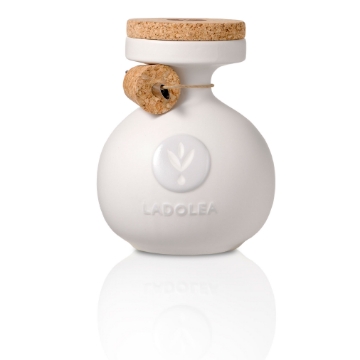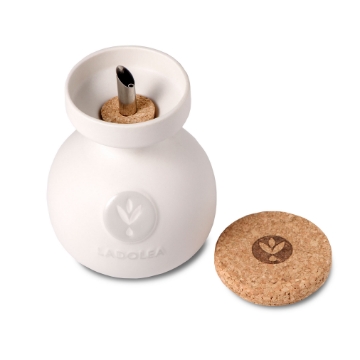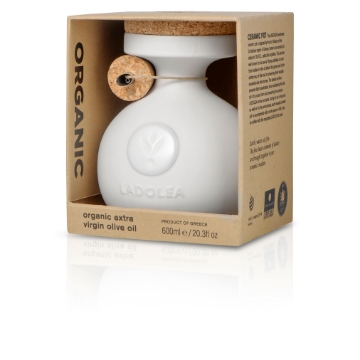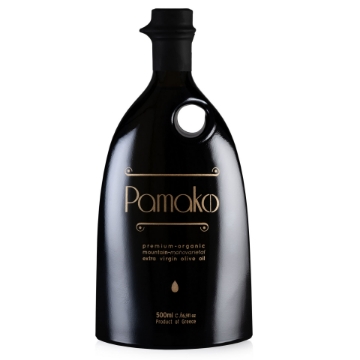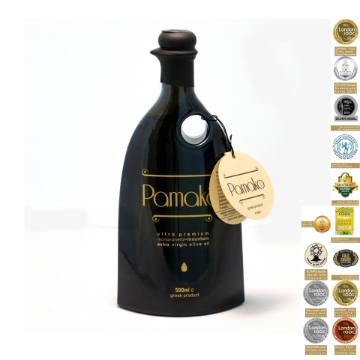
Greek olive oil has long been cherished for its exceptional quality, rich flavor, and numerous health benefits. But with a plethora of olive oil options available worldwide, many people wonder: Is Greek olive oil truly the healthiest? This blog post delves into the unique attributes of Greek olive oil, particularly Greek extra virgin olive oil, and why it stands out as a superior choice for health-conscious individuals. We will explore various facets of this golden elixir, including its production methods, nutritional profile, health benefits, and cultural significance. By the end, you’ll have a comprehensive understanding of what makes Greek olive oil a top contender in the realm of healthful oils.
The Tradition and Craftsmanship of Greek Olive Oil
Greece is renowned for its olive oil production, a tradition that dates back thousands of years. The country’s unique climate, combined with its rich soil and ancient olive groves, provides the perfect environment for cultivating high-quality olives. Greek extra virgin olive oil is produced through traditional methods that have been passed down through generations, ensuring the preservation of its nutritional integrity and exceptional flavor.
The production of Greek organic olive oil, in particular, adheres to stringent standards that avoid the use of synthetic pesticides and fertilizers. This not only protects the environment but also ensures that the oil retains its natural goodness. The meticulous care taken during the harvesting and pressing of the olives is crucial in producing the best extra virgin olive oil from Greece, known for its low acidity and robust flavor profile.
In regions like Crete and Kalamata, the olive oil production process is a labor of love. Olives are often hand-picked at the optimal time to ensure they are at their peak of ripeness. The olives are then cold-pressed within hours of harvesting, a technique that preserves their nutritional value and distinctive taste. This artisanal approach to olive oil production is a hallmark of Greek culture and a testament to the quality of Greek organic extra virgin olive oil.
Nutritional Profile of Greek Olive Oil
Greek olive oil, especially Greek extra virgin olive oil, is renowned for its rich nutritional profile. It is packed with monounsaturated fats, which are known to support heart health by lowering bad cholesterol levels and increasing good cholesterol. Additionally, it is a rich source of antioxidants, particularly polyphenols, which play a crucial role in reducing oxidative stress and inflammation in the body.
One of the standout features of Greek organic olive oil is its high content of oleocanthal, a compound with potent anti-inflammatory properties. Research has shown that oleocanthal can mimic the effects of ibuprofen, making Greek extra virgin olive oil a natural remedy for reducing inflammation and pain. This makes it particularly beneficial for individuals suffering from chronic inflammatory conditions such as arthritis.
Moreover, Greek olive oil is a good source of vitamins E and K, essential nutrients that support skin health, improve vision, and aid in blood clotting. The combination of these vitamins and antioxidants makes Greek organic extra virgin olive oil a powerhouse for promoting overall health and well-being.
The low acidity of the best extra virgin olive oil from Greece also contributes to its health benefits. Low-acidity oils are less likely to cause digestive issues and are easier for the body to absorb, ensuring that the beneficial nutrients are effectively utilized. This makes Greek olive oil an excellent choice for individuals with sensitive stomachs or those looking to optimize their digestive health.
Health Benefits of Greek Olive Oil
The health benefits of Greek olive oil are well-documented and numerous. Incorporating Greek extra virgin olive oil into your diet can provide a wide range of advantages, from improving cardiovascular health to enhancing cognitive function.
1. Cardiovascular Health: Greek extra virgin olive oil is rich in monounsaturated fats, which have been shown to reduce the risk of heart disease. These healthy fats help to lower LDL cholesterol levels and increase HDL cholesterol levels, promoting a healthy balance that supports heart health. Additionally, the antioxidants in Greek organic olive oil protect the cardiovascular system by reducing oxidative stress and preventing the oxidation of LDL cholesterol, a key factor in the development of atherosclerosis.
2. Anti-inflammatory Properties: The oleocanthal content in Greek extra virgin olive oil provides significant anti-inflammatory benefits. Regular consumption of Greek organic extra virgin olive oil can help reduce inflammation in the body, which is linked to a variety of chronic diseases, including heart disease, cancer, and neurodegenerative disorders. By incorporating Greek olive oil into your diet, you can support your body’s natural anti-inflammatory processes and reduce the risk of these conditions.
3. Cognitive Function: Emerging research suggests that the polyphenols in Greek olive oil may have neuroprotective effects. These antioxidants help to protect brain cells from oxidative damage, potentially reducing the risk of neurodegenerative diseases such as Alzheimer’s and Parkinson’s. Regular consumption of Greek extra virgin olive oil has been associated with improved cognitive function and memory, making it a valuable addition to the diet for maintaining brain health as we age.
4. Weight Management: Contrary to the misconception that all fats contribute to weight gain, the healthy fats in Greek extra virgin olive oil can actually aid in weight management. These fats promote satiety and help to regulate appetite, reducing the likelihood of overeating. Additionally, the anti-inflammatory properties of Greek organic olive oil can support metabolic health, making it easier to maintain a healthy weight.
Greek Olive Oil in Culinary Practices
Greek olive oil is not only a nutritional powerhouse but also a versatile culinary ingredient. Its rich flavor and robust aroma make it a favorite among chefs and home cooks alike. Greek extra virgin olive oil can be used in a variety of dishes, from salads and dips to main courses and desserts.
1. Salads and Dressings: The fruity and peppery notes of Greek extra virgin olive oil make it an excellent choice for salads and dressings. Drizzle it over fresh vegetables, mix it with lemon juice and herbs for a simple vinaigrette, or use it as a base for more complex dressings. The oil’s rich flavor enhances the taste of fresh produce, making your salads more delicious and nutritious.
2. Cooking and Sautéing: Greek organic olive oil is ideal for cooking and sautéing due to its high smoke point and stable composition. Use it to sauté vegetables, sear meats, or as a base for sauces and marinades. The oil’s robust flavor adds depth to your dishes, while its nutritional benefits remain intact even when exposed to moderate heat.
3. Baking and Desserts: Surprisingly, Greek extra virgin olive oil can also be used in baking and desserts. Its mild and fruity flavor pairs well with sweet ingredients, making it a healthy alternative to butter or other oils in recipes for cakes, cookies, and pastries. Try using Greek organic extra virgin olive oil in your next batch of muffins or as a drizzle over fruit-based desserts for a delightful twist.
4. Dips and Spreads: Greek olive oil is a key ingredient in many traditional Greek dips and spreads, such as hummus, tzatziki, and skordalia. Its rich flavor enhances these dishes, making them more flavorful and satisfying. Serve these dips with fresh bread or vegetables for a nutritious and delicious snack.
Choosing the Best Greek Olive Oil
When selecting Greek olive oil, it’s essential to choose a product that meets high-quality standards. Here are some tips for finding the best extra virgin olive oil from Greece:
1. Look for Certification: Certified Greek extra virgin olive oil will often have a seal of approval from a recognized certification body. This ensures that the oil has been produced according to strict standards and is of the highest quality. Look for certifications such as PDO (Protected Designation of Origin) or PGI (Protected Geographical Indication), which guarantee the oil’s authenticity and origin.
2. Check the Harvest Date: Freshness is key when it comes to olive oil. Check the label for the harvest date and choose a product that is less than a year old. Fresh olive oil will have a more vibrant flavor and higher nutritional value compared to older oil.
3. Opt for Organic: Greek organic olive oil is produced without the use of synthetic pesticides and fertilizers, making it a healthier and more environmentally friendly option. Organic certification also ensures that the oil is free from harmful chemicals and additives.
4. Buy from Reputable Sources: Purchase Greek olive oil from reputable sources, such as specialty stores, trusted online retailers, or directly from Greek producers. This ensures that you are getting a genuine product that has been carefully handled and stored.
For those looking to explore the best extra virgin olive oil from Greece, consider visiting Elenianna. This online marketplace offers a curated selection of high-quality Greek organic extra virgin olive oil, sourced from some of the best producers in the country. Whether you are a seasoned olive oil connoisseur or new to the world of Greek olive oil, Elenianna provides a range of options to suit your needs and preferences.
Conclusion
Greek olive oil, particularly Greek extra virgin olive oil and Greek organic extra virgin olive oil, stands out as one of the healthiest oils available. Its rich nutritional profile, numerous health benefits, and versatility in culinary applications make it a valuable addition to any diet. By choosing high-quality Greek olive oil, you can enjoy its delicious flavor while reaping the benefits of its antioxidant-rich, anti-inflammatory properties.
Whether you are a high-income earner seeking the finest gourmet products, a foodie exploring new culinary horizons, a member of the Greek diaspora reconnecting with your heritage, or a health-conscious millennial or Gen X individual, Greek olive oil has something to offer. Its timeless appeal and proven health benefits make it a staple in kitchens worldwide.
We invite you to leave a comment below and share your experiences with Greek olive oil. Have you tried Greek extra virgin olive oil or Greek organic olive oil? What are your favorite ways to use it in your cooking? We would love to hear from you and learn more about how this exceptional oil has enhanced your culinary and health journey.

